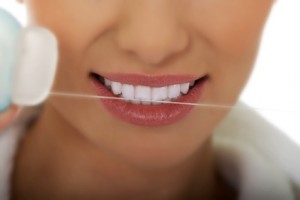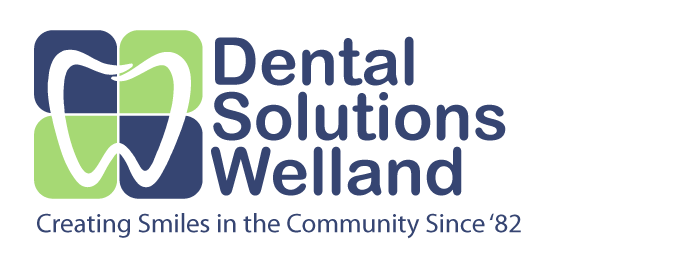BRUSHING & ORAL CARE

By daily brushing and flossing, you are lessening your chance of gum disease. If your gums bleed sometimes, don’t stop brushing. If the gums are regularly swollen, sore or bleeding, these are early signs of gum disease and you should go to the dentist as soon as you can.
Brushing Tips
There are different ways to brush your teeth. Remember to:
- Brush at least twice a day
- Brush every exposed tooth surface
- Use a gentle, massaging motion, and a toothbrush with soft bristles
- Brush for no less than 2 minutes
- Avoid using excessive force
- Make sure to clean the pits of your teeth as well
- Brush your tongue to kill bacteria and freshen your breath
- Get a new toothbrush every three months
- Never share your toothbrush
Flossing

Flossing cleans the areas your tooth brush can’t like between teeth and below the gum line. Any contact between teeth is a place for bacteria to grow. It’s recommended that you floss at least once a day
How much toothpaste should I use?
A pea size amount is sufficient. Too much toothpaste is unpleasant and can cause fluorosis.
SUCCESS IS IN THE TECHNIQUE
To maintain healthy teeth and gums it is important that bristles make contact with the tooth surface and the gum line. By following these steps, you will be better equipped to combat gum disease.
Caring For Your Toothbrush
After brushing, rinse it thoroughly and do your best to tap out any excess water
Store upright. Do not let the heads of toothbrushes touch
Do not store in closed containers
BRUSHING ALONE IS NOT ENOUGH TO REMOVE PLAQUE AND FIGHT GUM DISEASE
For all of us, certain habits are more difficult than others to establish. Flossing is just as, if not more important than brushing. To train yourself to floss, do so for 21 days and then do not floss on the 22nd day. You will begin to notice the difference as far as plaque buildup overnight without flossing for even one day. Then start flossing again on the 23rd day.
The Regular Dental Visit
In most cases, a check up every six months will let your dentist catch small problems early. Regular visits to your dentist combined with daily brushing and flossing plus a healthy diet should help your teeth last a lifetime.
THE CLINICAL DENTAL EXAMINATION
- Examine the gums
- Check for loose teeth
- Examine your tongue
- Check your bite
- Look for visual evidence of tooth decay
- Check for broken teeth
- Check for damaged fillings
- Check the contact between your teeth
- Take x-rays
- Examines your face, bite, saliva, and movement of your lower jaw joints (TMJs)
THE DENTAL CLEANING
- Check the cleanliness of your teeth and gums
- Remove any plaque and tartar
- Polish your teeth
- Floss between your teeth
- Review recommended brushing and flossing techniques
Once you have completed your exam and cleaning, your dentist will review the results and give any necessary recommendations to improve oral health. Your dentist will also stress the importance maintaining good hygiene habits at home. By doing your best to keep up with dental appointments and maintain good hygiene habits, you will effectively improve the overall health of your teeth and gums.
It is imperative to follow the instructions of your dentist to the tee.
Prevention is the key
Do I need to schedule a hygiene appointment every six months?
Depending on your individual situation, 6 months is the regular recommendation by dentists. But, if you are requiring extra attention to improve oral health, you may be recommended to visit more often.
Are routine dental x-rays really necessary?
It is important to update x-rays regularly as they help to reveal what is going on below the gum line and within the jawbone.
TIPS FOR FRESH BREATH
Bad breathe is typically caused from within the mouth, contrary to popular belief of issues stemming from the stomach. The best way to prevent bad breath.
Below we have included some tips on preventing bad breathe.
- Thoroughly floss, brush and rinse your mouth every day. Do your best to clean the back of your tongue, as this area holds to most potential for bacteria growth. By not taking proper care of your mouth, leftover food particles, saliva, plaque and bacteria cause bad breathe.
- It is best to brush your teeth after ingesting food. If you are unable to, rinse you mouth out well with water or a fluoride solution.
- Certain food like garlic, and onions, are very powerful and can affect your breathe for up to 72 hours after eating. The fumes from these foods get absorbed into your system through digestion, and then expelled by exhaling.
- Bad breath can eventually be an early sign of gum disease. Gum disease has the ability to affect all soft tissue and bone within your mouth. Flossing is the best for removing food particles between the teeth and under the gum line.
- Dry mouth is a leading cause of bad breathe. Saliva promotes the growth of good bacteria that helps prevent bad breathe by cleansing your mouth of odour causing food particles. Dry mouth can also be caused by medications, alcohol and breathing with your mouth open. To prevent this, drink plenty of water or chew sugar-free gum or keep hard candy to help moisten your mouth.
If bad breath does not want to go away, talk to your dentist. It could be a symptom of certain medical conditions, like diabetes, or infections of the mouth, nose and throat.
For more information, go to the following links:
http://www.jbutler.com/kids-stuff.aspx
http://www.colgate.com/app/Kids-World/US/Games-And-Activities.cvsp
 By daily brushing and flossing, you are lessening your chance of gum disease. If your gums bleed sometimes, don’t stop brushing. If the gums are regularly swollen, sore or bleeding, these are early signs of gum disease and you should go to the dentist as soon as you can.
By daily brushing and flossing, you are lessening your chance of gum disease. If your gums bleed sometimes, don’t stop brushing. If the gums are regularly swollen, sore or bleeding, these are early signs of gum disease and you should go to the dentist as soon as you can.
 Flossing cleans the areas your tooth brush can’t like between teeth and below the gum line. Any contact between teeth is a place for bacteria to grow. It’s recommended that you floss at least once a day
Flossing cleans the areas your tooth brush can’t like between teeth and below the gum line. Any contact between teeth is a place for bacteria to grow. It’s recommended that you floss at least once a day
